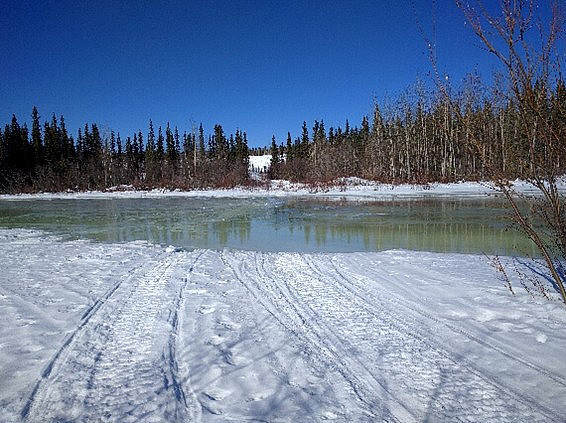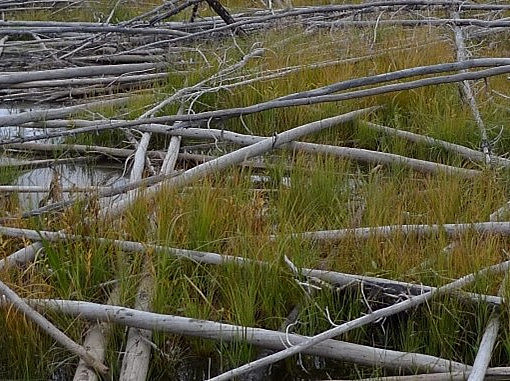We are INTEGRATIVES - Applied Integrative Geography!
Introducing our research group

The INTEGRATIVES working group is aligned with contemporary environmental research that considers the physical and social environment in a holistic manner. Therefore, the research of INTEGRATIVES emphasizes the involvement of society in research and fosters an intensive dialogue between natural sciences and social and humanities disciplines, such as physical geography and human geography, but also beyond.
The regional core expertise lies in polar research, particularly in the Arctic and Sub-Arctic. Additionally, global and multiscalar interconnections are examined, including case studies from Austria and Europe. Society's challenges addressed by INTEGRATIVES include climate change, the rapid intensification of raw material use and mining with geopolitical repercussions, neocolonial developments, and backlash in societal diversity issues. All of these aspects are rooted in environmental-specific questions that need to be addressed and managed.
We advocate for a transdisciplinary methodological approach—that is, the active involvement of citizens and societal stakeholders, such as local communities and Indigenous groups (rights holders), in the joint production of knowledge. The so-called co-creative and decolonial approach in INTEGRATIVES research means applying lenses such as inequalities and justice in intercultural and (neo-)colonial contexts from a methodological and epistemological perspective. We aim to understand contemporary challenges analytically and evidence-based, and to communicate the results in a societally relevant manner.
Foci
- Critical raw materials in times of transformations: Project Beyond Hot Air – Conversations around critical raw materials supply for the ‘green’ transition
- Arctic in practice: SermilikT – the Sermilik methods training hub for decolonial, interdisciplinary and transdisciplinary Arctic research (in planning stage)
- Science politics: Project Science under Pressure – Reflecting on conditions, practices and institutional structures for sustainable polar research
Cross-cutting themes
- Co-creative methodologies - interdisciplinary, transdisciplinary, decolonial: see also Co-create Arctic collaborative
- Gender and diversity: see also IASSA Working Group Gender in the Arctic (International Arctic Social Sciences Association)

Our Projects
Conversations around critical raw materials supply for the ‘green’ transition
Beyond Hot Air is a conversation. It is an international multi-stakeholder initiative that explores the complex landscape of mineral raw materials supply for the ‘green’ transition.
Especially critical raw materials (CRM) are a vital part of current forms of transformation and corresponding technologies. Through constructive and collaborative conversations, in the form of workshops, webinars, videos or blogs, we focus on the complex relationship between mining and the energy transition, digitization and military proliferation. We seek to dig deep to expose the dissonances, injustices and potential synergies in current debates, challenging the status quo.
Duration: 2023-
Website: https://miningbeyondhotair.org/
Partners: University of Graz, Montanuniversität Leoben, Uni Vienna, Uni Melbourne, Uni Sorbonne, Uni Laval, ecw Energy ltd, Uni Karlstad, Inland Norway University of Applied Sciences, Austrian Polar Research Institute APRI
Co-Funding: University of Graz and SSHRC Social Sciences and Humanities Research Council Canada. BhA is a sub-project of SSHRC funded MinErAL – Knowledge Network on mining encounters and Indigenous sustainable livelihoods
Reflecting on conditions, practices and institutional structures for sustainable polar research
Within both the ICARP IV process and the first IPY-5 (International Polar Year 2032-33), ambitions are high, for instance regarding co-creation of (working with different) knowledge (systems), international cooperation, more holistic research approaches, contribution of science to address climate, environmental and societal problems and more communication and outreach activities. Furthermore, there is an increasing awareness that research should be conducted in an environmentally sustainable as well as healthy way.
At the same time, rapid action and complex research requirements put scientists under pressure in terms of the existing mismatch of the conventional environment in academia with high-speed production and precarious working conditions for many.
We think it is important and timely to rethink how we want to organise the knowledge production process in the future. Can we reduce detrimental speed in science and take more time for high quality work? Currently little attention is given to reduce pressure on the research community, the individual researchers as well as on the Indigenous Peoples involved in science.
Our main goal is to develop evidence-based improvements to the status quo in polar research structures. In other words, the IPY-5 program should be drawing on best practices and IPY-5 objectives must be consistent with the principles of equity, diversity and inclusion and promote collaborative, co-productive, culturally sensitive and sustainable approaches to research.
This means that employment conditions and institutional structures in polar research must be improved to meet the mentioned ambitions.
Duration: 2025 -
Website: https://www.rug.nl/research/arctisch-centrum/projects/sup/
Partners: University of Graz, University of Groningen, SCAR, Yukon University, Austrian Polar Research Institute APRI
Co-funding: University of Graz and IASC International Arctic Science Committee